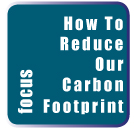 By Martin Hickman
By Martin Hickman
“A vegetarian driving a Hummer leaves less of a carbon footprint that a non-vegetarian driving a Prius.†– Reader’s comment.
“Most Attractive Opportunityâ€
Climate change emissions from meat production are far higher than currently estimated, according to a controversial new study that will fuel the debate on whether people should eat fewer or no animal products to help the environment.
In a paper published by a respected U.S. think-tank, the Worldwatch Institute, two World Bank environmental advisers claim that instead of 18 per cent of global emissions being caused by meat, the true figure is 51 percent.
They claim that United Nations’ figures have severely underestimated the greenhouse gases caused by tens of billions of cattle, sheep, pigs, poultry and other animals in three main areas: methane, land use and respiration.
Their findings come amid increasing calls from climate change experts for people to eat less meat.
In the 19-page report, Robert Goodland, a former lead environmental adviser to the World Bank, and Jeff Anhang, a current adviser, suggest that domesticated animals cause 32 billion tons of carbon dioxide equivalent (CO2e), more than the combined impact of industry and energy. The earlier accepted figure was 18 per cent, taken from a landmark U.N. report in 2006, “Livestock’s Long Shadow.â€
“If this argument is right,†write Goodland and Anhang, “it implies that replacing livestock products with better alternatives would be the best strategy for reversing climate change.
“In fact, this approach would have far more rapid effects on greenhouse gas emissions and their atmospheric concentrations than actions to replace fossil fuels with renewable energy.â€
Their call to move to meat substitutes accords with the views of the chairman of the U.N.’s Intergovernmental Panel on Climate Change, Dr. Rajendra Pachauri, who has described eating less meat as “the most attractive opportunity†for making immediate changes to climate change.
Lord Stern of Brentford, author of the 2006 review into the economic consequences of global warming, added his name to the call last week, telling a newspaper interviewer: “Meat is a wasteful use of water and creates a lot of greenhouse gases. It puts enormous pressure on the world’s resources.â€
Methane Makes the Difference
Scientists are concerned about livestock’s exhalation of methane, a potent greenhouse gas. Cows and other ruminants emit 37 per cent of the world’s methane. A study by NASA scientists published in Science last month found that methane has significantly more effect on climate change than previously thought: 33 times more than carbon dioxide, compared with a previous factor of 25.
According to Goodland and Anhang’s paper, scientists have significantly underestimated emissions of methane expelled by livestock. They argue that the gas’s impact should be calculated over 20 years, in line with its rapid effect – and the latest recommendation from the U.N. – rather than the 100 years favored by “Livestock’s Long Shadow.†This, they say, would add a further 5 billion tons of CO2e to livestock emissions – 7.9 per cent of global emissions from all sources.
Similarly, they claim that official figures are wrong to ignore CO2 emitted by breathing animals on the basis that it is offset by carbon photosynthesized by their food, arguing the existence of this unnecessary animal-based CO2 amounts to 8.7 billion tons of CO2e, 3.7 per cent of total emissions.
On land use, they calculate that returning the land currently used for livestock to natural vegetation and forests would remove 2.6 billion tons of CO2e from the atmosphere, 4.2 per cent of greenhouse gas. They also complain that the U.N. underestimated the amount of livestock, putting it at 21.7 billion against NGO estimates of 50 billion, adding that numbers have since risen by 12 per cent.
Other Factors
Eating meat rather than plants also requires extra refrigeration and cooking and “expensive†treatment of human diseases arising from livestock such as swine flu, they say.
While looking into the paper’s findings, Friends of the Earth said the report strengthened calls for the government to act on emissions from meat production. “We already know that the meat and dairy industry causes more climate-changing emissions than all the world’s transport,†said Clare Oxborrow, senior food campaigner.
“These new figures need further scrutiny but, if they stack up, they provide yet more evidence of the urgent need to fix the food chain. The more damaging elements of the meat and dairy industry are effectively government-sponsored: millions of pounds of taxpayers’ money is spent propping up factory farms and subsidizing the import of animal feed that’s been grown at the expense of forests.â€
Justin Kerswell, campaign manager for the vegetarian group Viva!, said: “The case for reducing consumption of meat and dairy products was already imperative based on previous U.N. findings. Now it appears to have been proven that the environmental devastation from livestock production is in fact staggeringly more significant – and dwarfs the contribution from the transport sector by an even greater margin.
“It is essential that attention is fully focused on the impact of livestock production by all global organizations with the power to affect policy.â€
You can read Goodland and Anhang’s study “Livestock and Climate Change†at http://www.worldwatch.org/node/6294.
Journalist Martin Hickman, is the consumer affairs correspondent for the British newspaper The Independent.


1 comment for “Study Claims Meat Creates Half of All Greenhouse Gases”